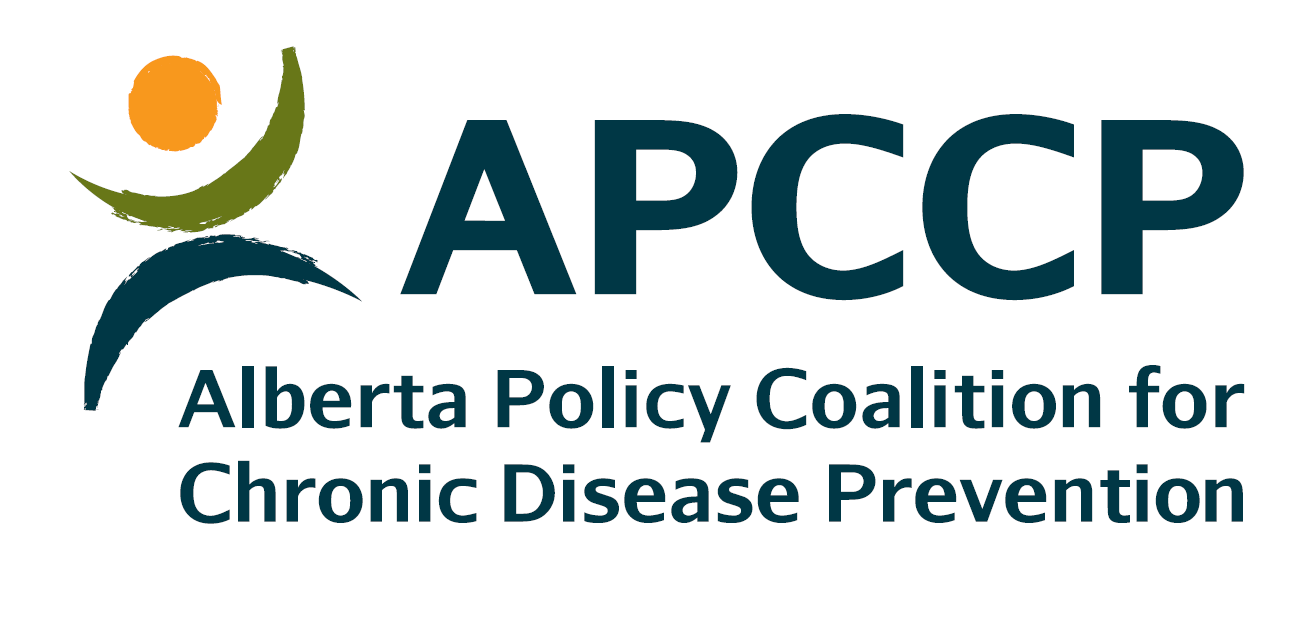EDMONTON – On Wednesday, April 5th, the Government of Alberta announced $10M in funding for the province’s Student Nutrition Pilot program, an increase from its initial $3.5M investment in November 2016.
The additional pilot funding will support school meal and snack programs in all 60 publically funded school boards across Alberta, up from the initial 14 participating boards in 2016/2017. As part of the pilot, schools will be required to follow the Alberta Nutrition Guidelines for Children and Youth, as well as incorporate a nutrition education component. School boards will take the lead on how the money is allocated within their jurisdiction.
The Alberta Policy Coalition for Chronic Disease Prevention (APCCP), a coalition of 17 prominent health organizations from across Alberta, commends the government’s investment in school nutrition. “The majority of kids in Alberta are not eating enough fruits and vegetables,” said Kayla Atkey, Policy Analyst for the APCCP. “Providing healthy school food paired with nutrition education can support student well-being and academic performance, while also helping young people develop skills for life long health.”
The funding is a step in the right direction. However, the $10M is a far cry from the government’s 2015 campaign promise of investing $60M in school nutrition programs by 2017/2018. Ultimately, an investment of $60M would enable even more students across Alberta to benefit from healthy school food.
Student Advocates for Public Health (SAPH), a group of University of Alberta students at the School of Public Health, want to see government make good on its campaign promise. “We are calling on the government to, at a minimum, fulfill its campaign promise of investing at least $60M annually in building a province-wide school meal program,” said Alexandra Kanters, a graduate student at the School of Public Health and member of SAPH. “Alberta may be experiencing economic challenges, but that’s when student nutrition programs are needed the most. There is evidence that universal school meal programs are of great benefit to students, and that’s ultimately what we’d like to see for the province.”
Investments in student nutrition can result in positive outcomes related to student performance. Findings from researchers at the University of Alberta School of Public Health have shown that improvements to children’s diets could result in up to 1.4% additional students meeting the Acceptable Standard on their Provincial Achievement Tests (PATs), which is seven times the annual goal laid out in Alberta Education’s 2016-2019 Business Plan (1). “Children who meet recommendations for sugar consumption alone score almost 6% better on their PATs than children who don’t meet the recommendation,” said Erin Faught, PhD Candidate at the School of Public Health. “Supporting nutritious food environments in schools is a clear opportunity for Alberta Education to more than meet their goals for student achievement with the added benefit of improved health among students.”
Since 2013, Alberta organizations such as the APCCP and Alberta Food Matters having been calling on the Alberta government to develop a Universal School Food Strategy, key aspects of which include healthy meals and/or snacks for K-12 students, comprehensive nutrition education and relationships with local producers when feasible.
Scott Hall, a teacher with Ermineskin School in Maskwacis, Alberta, has helped to turn the vision for a Universal School Food Strategy into a reality. He currently supports Ermineskin’s student-run breakfast and lunch program for K-12 students, which sources local food, incorporates nutrition education and involves students in cooking and preparing school meals. “An investment of $60M would be a good start in terms of facilitating the implementation of a Universal School Food Strategy across the province,” noted Scott Hall.
According to researchers at the University of Alberta School of Public Health, there is public support for action to promote healthy school food in Alberta. A 2016 survey administered to 1,200 people in Alberta found that the vast majority of respondents (92%) support mandating policies for healthy food and beverages at schools (2).
-30-
To arrange an interview, please contact Kayla Atkey at 780-492-0493 or Erin Faught at 780-492-5472.
Available Spokespersons:
- Kayla Atkey, Policy Analyst, Alberta Policy Coalition for Chronic Disease Prevention
- Alexandra Kanters, Graduate Student, Student Advocates for Public Health, University of Alberta School of Public Health
- Erin Faught, PhD Candidate, University of Alberta School of Public Health
- Scott Hall, Teacher, Ermineskin School in Maskwacis, Alberta
About the APCCP
The APCCP represents a broad range of practitioners, policy-makers, researchers and community organizations who have come together to coordinate efforts, generate evidence and advocate for policy change to reduce chronic diseases in Alberta. For more information, visit: www.apccp.ca.
Additional Information:
- APCCP Issue Brief on a Universal School Food Strategy: http://abpolicycoalitionforprevention.ca/healthy-communities/healthy-eating/#1471624012498-ba9db32e-30be
- Download the PDF News Release
References
- Alberta Education. Business Plan 2016-2019.March 2016. Available from: http://www.finance.alberta.ca/publications/budget/budget2016/education.pdf
- POWER UP! Coalition Linking Action and Science for Prevention. Chronic Disease Prevention Survey. School of Public Health, University of Alberta. 2017.
Alberta Policy Coalition for Chronic Disease Prevention (APCCP)
#4-343, Edmonton Clinic Health Academy (ECHA)
11405-87 Avenue
Edmonton, AB T6G 1C9
P. 780.492.0493 | F. 780.492.0364




